by Nathaniel R
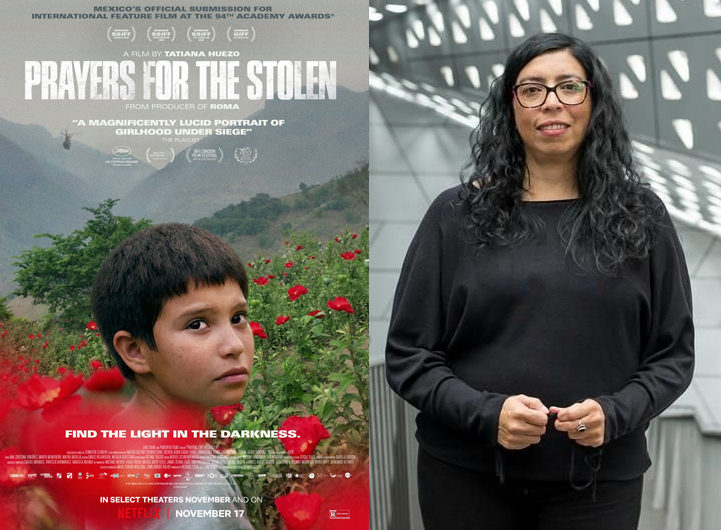
After several shorts and a few documentaries including the highly acclaimed Tempestad, which won her the Best Director Ariel back home in Mexico, filmmaker Tatiana Huezo didn't rest on her laurels. She wanted to take a risk. She set herself an "ambitious challenge" for her first narrative feature, adapting the award winning novel "Prayers for the Stolen" by Jennifer Clement about young girls living in the mountains who are in continual danger of abduction and worse from the cartels.
The risk paid off when her film debuted to immediate praise at Cannes where it won a Special Mention in Un Certain Regard. Prayers for the Stolen, now streaming on Netflix, was then selected as Mexico's Oscar submission for Best International Feature Film. We were privileged to sit down with the director recently to discuss her film and the Oscar race. This interview was conducted with a translator though Tatiana Huezo slipped into English once, with joyful laughter to say "Nooo, it's too much!" when the topic of Oscar submissions came up...
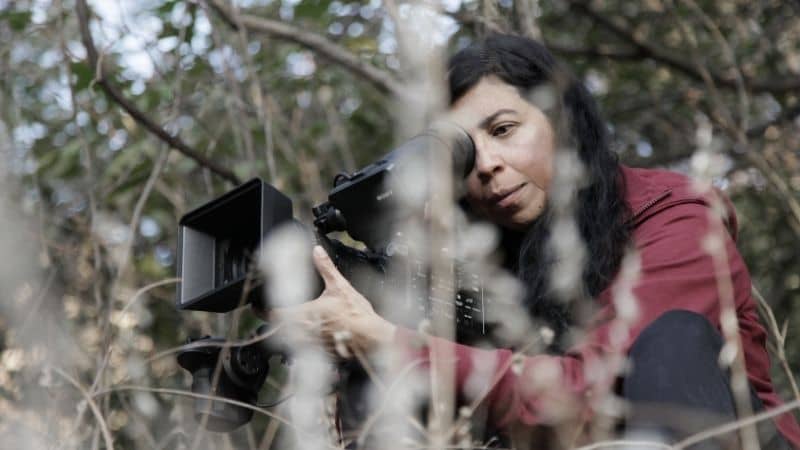
NATHANIEL: Was it a natural evolution for you jumping from documentaries to narrative work?
TATIANA HUEZO: Indeed. Even in documentaries I'm working out a dramatic structure. My filmmaking has always had a specific aesthetic feel.
Did anything change?
What was really complicated was to arrive on set and see 100 people in the crew! That made me anxious because for 15 years i've only been working with seven people. Right off the bat they sat me in a chair with a big monitor away from everything and I really couldn't do it. I'm very used to standing right next to the DP. The mechanism had to adapt itself to me as well.
Directing actors is new for you and this much have been difficult to cast since it's filled with children but the performances are great.
Most of my energy was extended there since it was the biggest challenge and also I knew that that was the one thing that couldn't go wrong. It was also a challenge to find the three young girls and their older clones -- the casting went on for almost a year. It was really important for me to find young girls who actually were from rural Mexico. They had to be girls who were used to walking barefoot, walking around cows, diving into freezing rivers without a thought. I really couldn't see girls from the city doing this without perhaps even getting sick.
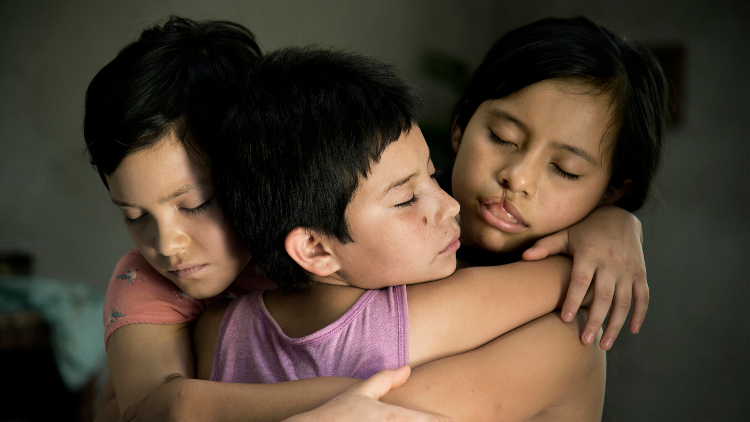
And there was this woman, Grace Miguel Villanueva, who was almost like a warrior. She worked on Roma, too, by the way. She was able to find these girls -- about 800 girls auditioned.
Well it really paid off. It does feel like you're a natural for narrative features.
Thank you. My instinct for how I work with the "real" still informed this. Those of us who are documentarians, our eyes are tuned to little items that can really capture moments filled with truth. So this is something I also did even though we were working with fiction. I was attuned to finding any of these things, as they came to me while working, particularly with the girls. We worked with the girls and trained them, with a coach Fatima, for three months to prepare them both physically and emotionally.
I have to ask about the opening scene. Watching a mother and daughter digging a grave and laying in it. It was so context free at that point and but potent. Did you storyboard?
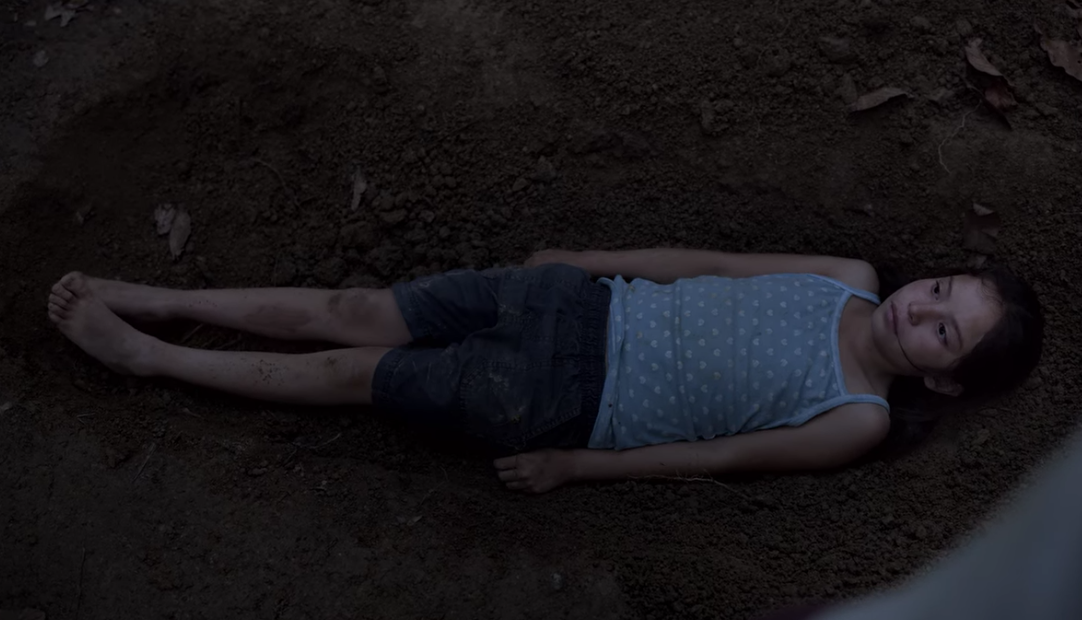
No but it is very important for me to imagine what the film looks like before I shoot it. I do a list of the kinds of shots I want to creat. I thought it was very symbolic, a mother and daughter digging these tombs, if you will. And I had imagined in my head that this would happen in the twilight moment hoping no one else would realize what they're doing. I'm pleased that you asked about this because this did not come from the book. This belongs to my own imagination. A little bit later in the narrative the girl says to her mother 'all you want to do is put me in the grave like a worm'
Your films have these very heavy themes like human trafficking, civil war, violence against women. But i appreciated the levity you brought here at times with the children -- they do have joy in their lives. Were you often thinking about this balance?
Totally! Completely. Even though there is a darkness and a sense of this monster threatening the girls, there's also a magical part of life, particularly at that age. At the heart of this film is a child's perspective that's filled with both the magic and purity of those moments but also the willingness to challenge authority... to be a bit of a big mouth, if you'd like. It's a tender look at life but also constantly questioning why the world is the way it is. So for me it was also really important to have this honest gaze at the violence versus the silence, in which it's otherwise dealt with in the rest of the world.
Before we go we have to talk about the Oscars a bit. Is the filmmaking community in Mexico tight knit or competitive?
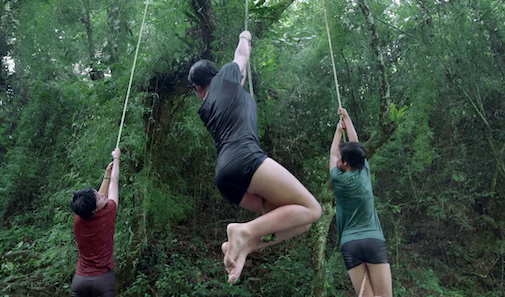
We all do know each other or at least know of each other. It's supportive sometimes but also combative. Combative in the sense that we have to fight so that financial support is not removed. In that way we come together to fight for our right to make the films. So even though it's a competitive community it's also one that is full of solidarity.
This is your second Oscar submission from Mexico, the first being Tempestad. Did you expect you were going to be selected again.
"No. It's too much!" [Laughs] It surprised me. I thought there were other Mexican films that had been at festivals already and won awards and that Prayers for the Stolen was too 'new'. But it's been very well received and I'm so very proud of the fact that we can continue to push the movie forward. I think on some level, by selecting this film, the Mexican Academy is paying tribute to the mothers who fight so hard to protect their girls. This problem Mexico is facing, and not just Mexico, diminishing the violence against women, is really important and timely.

Prayers for the Stolen is now streaming on Netflix. The Academy will announced the 15 finalists for Best International Feature Film on December 21st, 2021.